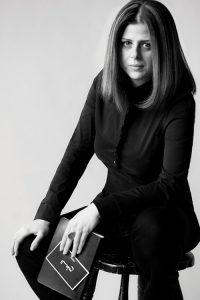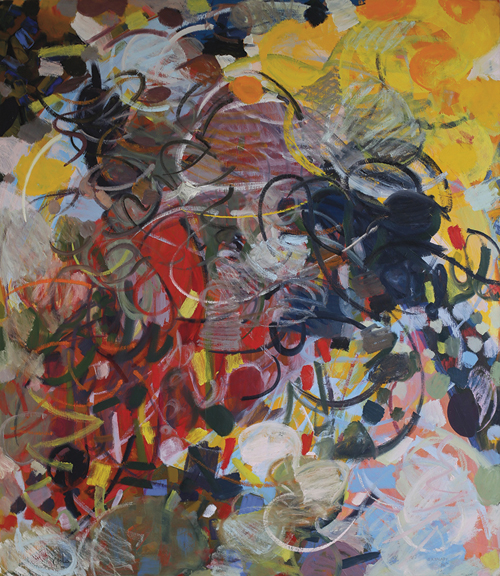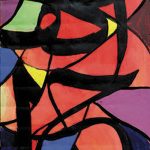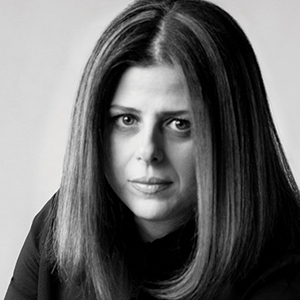 Nathalie Handal is from Bethlehem. She earned an MFA in poetry from Bennington College and an MPhil in Drama and English from the University of London. She is the author of the poetry collections The Neverfield (1999), The Lives of Rain (2005), and Love and Strange Horses (2010), winner of the 2011 Gold Medal Independent Publisher Book Award, which the New York Times called “a book that trembles with belonging (and longing).” Poet in Andalucía (2012) includes, as Alice Walker wrote, “poems of depth and weight and the sorrowing song of longing and resolve.” The Invisible Star (2014) is the first contemporary collection of poetry that explores the city of Bethlehem and the lives of its exiles in the wider diaspora. Her recent book is the flash collection The Republics (2015), lauded as “one of the most inventive books by one of today’s most diverse writers,” and winning both the Virginia Faulkner Award for Excellence in Writing and the Arab American Book Award. Handal’s poetry draws on her experiences of dislocation, home, travel, and exile. Critic Catherine Fletcher writes, “While alternating stylistically between the narrative – tinged by the Romantic tradition – and the slightly surreal, much of Handal’s work is also marked by various forms of fragmentation. She has worked on more than 20 theatrical productions either as a playwright, director, or producer. Plays she has authored have been performed at the John F. Kennedy Center for the Performing Arts, Bush Theatre, and Westminster Abbey in London.
Nathalie Handal is from Bethlehem. She earned an MFA in poetry from Bennington College and an MPhil in Drama and English from the University of London. She is the author of the poetry collections The Neverfield (1999), The Lives of Rain (2005), and Love and Strange Horses (2010), winner of the 2011 Gold Medal Independent Publisher Book Award, which the New York Times called “a book that trembles with belonging (and longing).” Poet in Andalucía (2012) includes, as Alice Walker wrote, “poems of depth and weight and the sorrowing song of longing and resolve.” The Invisible Star (2014) is the first contemporary collection of poetry that explores the city of Bethlehem and the lives of its exiles in the wider diaspora. Her recent book is the flash collection The Republics (2015), lauded as “one of the most inventive books by one of today’s most diverse writers,” and winning both the Virginia Faulkner Award for Excellence in Writing and the Arab American Book Award. Handal’s poetry draws on her experiences of dislocation, home, travel, and exile. Critic Catherine Fletcher writes, “While alternating stylistically between the narrative – tinged by the Romantic tradition – and the slightly surreal, much of Handal’s work is also marked by various forms of fragmentation. She has worked on more than 20 theatrical productions either as a playwright, director, or producer. Plays she has authored have been performed at the John F. Kennedy Center for the Performing Arts, Bush Theatre, and Westminster Abbey in London.
Handal is a professor at Columbia University, and writes the literary travel column “The City and the Writer” for Words without Borders.
Echoes: A Historical Afterward
The reason is they’ve been killed
The truth is you’ve been too
The truth is you are now without a home
The reason is they’re in your home
The reason is they’ve convinced themselves you left
The truth is you only went to safety
The truth is they never let you back
The reason is they needed to protect their tribe
The truth is you are part of the same tribe
But no one speaks about that
The reasons is it’s easier to be a threat
How else can they justify the killing
The Missing Slate: Many of your poems echo images of home — for example, in “Echoes: A Historical Afterward,” you speak of the loss of home and loss of the tribe. What informs your idea of displacement in poetry?
Nathalie Handal: Exile and its interminable twists. A life trying to arrive at a resolution that displacement will never entirely grant. Being torn and scattered is an eternal wound that some of us manage, and others don’t. Return is an illusion. Yet with poetry, I’ve been able to reconstruct my destroyed city, my lost country, my family, my memories, my heart, and my return. That’s the power of the imagination and of the word. It resists structures of power and injustice in the most essential ways, giving voice to the ruins, and assuring they are discovered, seen and heard.i

The Record Keeper
He carried a black wing.
He parted the curtains after a bomb fell on a loaded song.
He asked a comrade if there’s a long-distance between
what we disarrange and need instructions for,
he disassembled fire to overhear history whisper to history.
He said on his tongue lies a ruin
and there are commas all over his body.
He said there is no perfect exit,
there is only absence falling into absence
and there’s also a high window
and there is always evening prayer.
He said clues don’t belong with the dead,
dim the lights
the other country isn’t close.
Nathalie Handal Introduced by: Katy Lewis Hood

Handal’s poem tells of a man – a record keeper – living amongst the devastations of the war in Afghanistan. A bomb begins the poem, but it is soon accompanied by other, quieter sounds: whispers of history, prayer, speech, song. These sounds echo in the poem’s many gaps, long distances, and absences, allowing it to convey a sense of intimacy between land, body, and language, even if all three are close to ruin. Handal’s lines are evocative yet measured, inviting close attention and deliberation, wherever that is possible as the terrifying record of war runs on both within and beyond the poem. It is within such brief moments of rumination that the “high window” appears, as a source of light and potential escape, but far from a “perfect exit.” In this sense, “The Record Keeper” leaves us conflicted. But it also asks us to listen, and when we do we find fleeting glimmers of hope. Such a careful negotiation of subjectivity and archive resonates in a world that again and again threatens disconnection.ii
Talhamiyeh
I heard
I’m an Armenian
who believes that stars
are the pieces of lightening
history left to space,
I heard
I have Roman blood
and my brother is Turkish
and Greek,
I heard
my heart is
by the Mosque of Omar
by the Nativity
beside a talisman
and an old man
without teeth or keys,
I heard
my poems turned into stones
with Aramaic letters,
I heard
that here
invaders push natives aside
natives hand their names to trees
and trees rehearse the verses
freedom left,
I heard
I was a house
made of Mediterranean light
except I only heard this in Springtime
and Spring might not exist here anymore—
they took all of our trees—
perhaps Jesus can explain what happened
or perhaps all I need to remember
is that
I heard—but this I know—
I’m an Arab,
the seven quarters
of the old city
has left me seven keys
so I can always enter.
Here
The Old Port of Jaffa
is here
the sunlight poised
on our memories
here
the old stones houses
with our tiles tiles tiles
evidence of homes buried
in different names
here
the years we never defined
here
the echoes we collected
in each other
here
the shivering breeze
against our skin
the dark paradise
under our eyes
here
but you were not here
and I was not here
they say
but we were here
we are here
we are here
Country of Torn Men
Here, men don’t lie
or lean on their beds and pray;
they sit on stools, sing by a wall,
wonder if jagged lines glisten
when divided hearts break the law,
and miles of giant afternoons,
when the hesitation on lips
slides further into doubt
the way the desert does
when language is sealed
to keep breaths
from dividing the mirror.
Or is it the nation?
The Oranges
They were all around me
but grew heavier and heavier
until I couldn’t carry them
anymore—
who can live with such weight
around the heart
who can carry a bent flame
across the night
where pieces of a moon
keep trying to declare something
to each other
but never do
who can see anything
when light is displaced
when the oranges have been taken
far away from where they belong
To Sami, Jaffa
Even in Love
I try to tell you
there isn’t a part of you missing
that even if war
has damaged you
I want to be close
to your wound
it’s your heart that undresses me
when you don’t touch me
it’s your noise that blows open
my darkness
and maybe, I ask
(but never ask you)
the hole you fell into
is nothing
it’s what remains around it
that matters
But even in love
war inhabits me
The poems in this feature have been published in various journals and magazines.
Nathalie Handal says that “the aches of exile are unremitting,” and “such sadness finds relief in words”:
I am seven
it is the day before our departure,
the day my father
gives me a notebook,
and I tell him,
this is where I’ll keep my country.
The poems in this feature have been published
in various journals and magazines.
i Prayuka Pratash, “Poet of the Month: Nathalie Handal,” The Missing Slate, available at http://themissingslate.com/2016/10/31/poet-month-nathalie-handal/.
ii Pushcart Prize Nominations 2017, The Missing Slate, available at http://themissingslate.com/2016/11/16/pushcart-prize-2017-nominations/.


